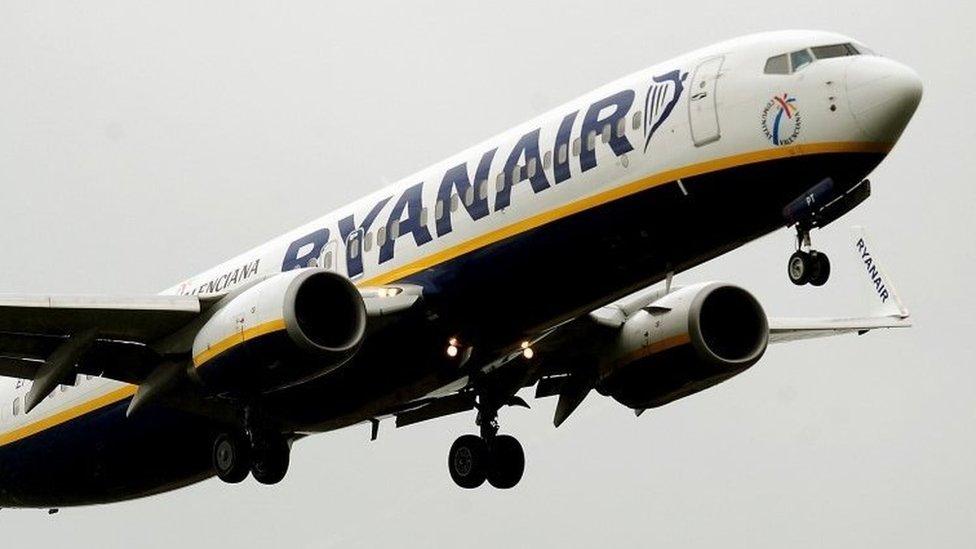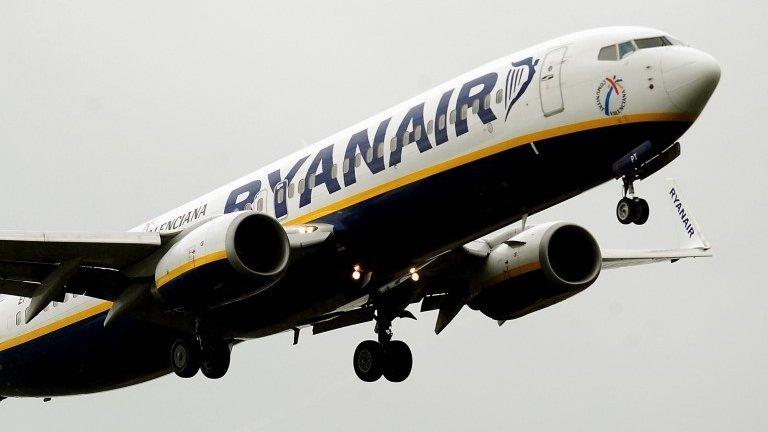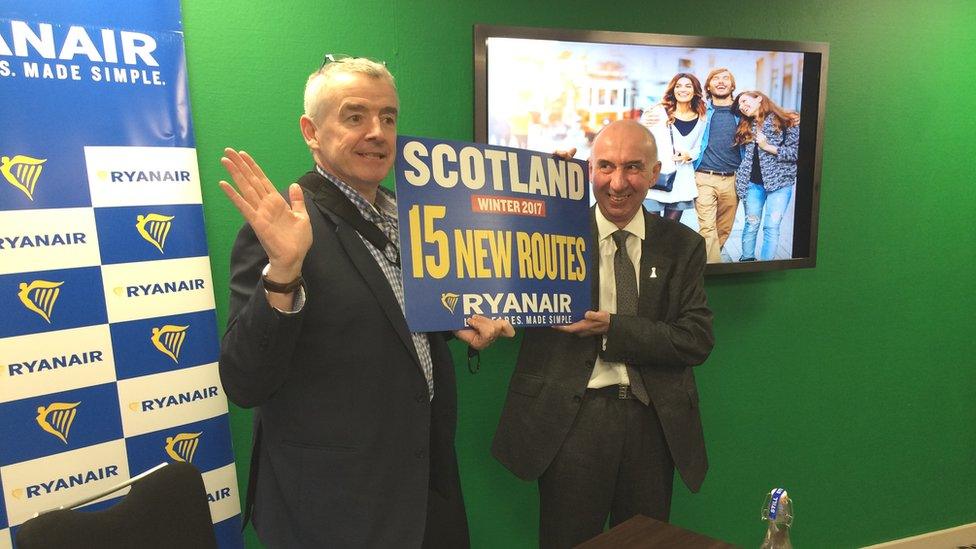Ryanair expects lower fares but reports record profits
- Published
- comments

Ryanair expects fares to keep falling, although the decline will be less steep than last year.
The Irish airline said fares would fall by between 5% and 7% in the 12 months to March 2018, partly due to the weakness of the pound. In the previous financial year they fell by 13%.
Despite the weaker pricing, Ryanair posted a record profit of 1.32bn euros (£1.14bn) as passenger numbers rose.
But it warned that Brexit and the fear of terror attacks remained challenges.
Shares initially fell but later reversed course to be up 0.5% at 18.10 euros in afternoon trading. The stock has risen by almost a quarter this year.
The airline, which flies 1,800 daily flights across 33 countries, attributed its lower fares to competition among European airlines and the weakness of the pound since the Brexit vote.
Despite the current challenges, Ryanair said it was cautiously forecasting an 8% increase in profits for the current financial year.
Cheaper fares
Sterling has slipped by about 16% against the dollar since last June, meaning the tickets the airline sells in sterling are worth less in euros - the currency in which it reports its results.
However, Ryanair said it had stimulated growth with cheaper fares, with passenger numbers up 13% in the year to the end of March 2017.
The carrier also said it had weathered a series of "security events" in European cities that had also prompted it to cut prices.
Its 1.32bn euro profit for 2017 was in line with analysts' forecasts. Revenues climbed 2% to 6.65bn euros.
Despite the lower fares, Ryanair said the number of on-time departures fell from 90% to 88% due to repeated air traffic control staff shortages and strikes, as well as bad weather.
"In March alone, a series of unjustified … strikes caused almost 560 Ryanair flight cancellations, and the loss of over 100,000 customer bookings," it said.
Brexit deal warning
Ryanair, which campaigned for Britain to remain in the EU, said a "hard Brexit" - in which the UK leaves the EU without a trade deal - was a significant risk as it could disrupt UK-EU flights.
Kenny Jacobs, Ryanair's chief marketing officer, told BBC Radio 4's Today programme there had been no clarity from the government.
"They have indicated they will leave the European Court of Justice, that is the European institution that governs open skies, so Britain is going to leave open skies as it now stands," he said.
"If there isn't a new bilateral [deal] in place then you may have very restricted or no flying between Europe and the UK for a period.
"I think it's clear we're heading to what looks to be a very ugly divorce at the moment."
To offset these risks, the firm said it would continue to expand capacity elsewhere in Europe to capitalise on the "many growth opportunities" outside the UK.
- Published6 February 2017

- Published16 February 2017
